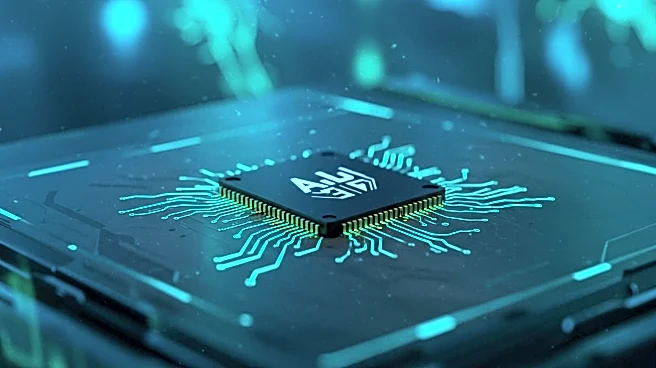What's Happening?
President Trump has confirmed a deal with AI chipmakers Nvidia and AMD, allowing them to export advanced AI chips to China in exchange for a 15% revenue share with the U.S. government. This agreement grants the companies export licenses for their H20 and MI308 chips, which are designed for the Chinese market under previous export restrictions. The deal follows intense lobbying by Nvidia's CEO Jensen Huang and marks a significant shift in U.S. trade policy, as it involves direct financial transactions between corporations and the government.
Why It's Important?
The deal is crucial for Nvidia and AMD as it opens access to the lucrative Chinese market, which is rapidly expanding its investment in AI technology. The agreement also reflects the Trump administration's strategic approach to maintaining U.S. technological leadership while addressing national security concerns. By securing a revenue share, the U.S. government gains a stake in the economic benefits of AI technology exports, potentially influencing future trade negotiations and corporate strategies.
What's Next?
The agreement may lead to further scrutiny and debate over the role of government in corporate revenue sharing and its implications for U.S.-China trade relations. Other tech companies may seek similar arrangements, while policymakers assess the impact on national security and economic interests. The deal could also affect investor confidence and market dynamics in the AI industry.
Beyond the Headlines
The deal highlights the complex interplay between technology, trade, and national security, raising ethical questions about government involvement in corporate affairs. It also underscores the competitive pressures in the AI industry and the geopolitical significance of technology exports.









